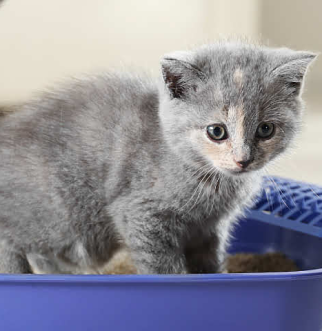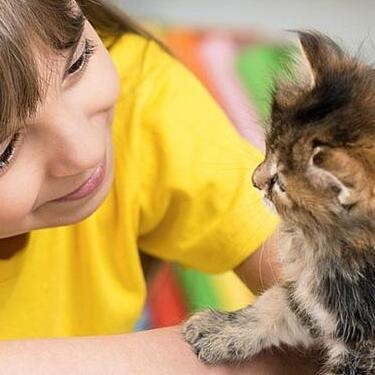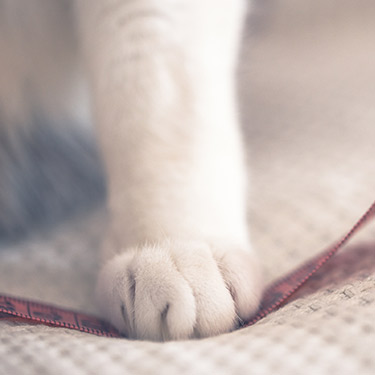
-
Find the right food for your pet
Take this quiz to see which food may be the best for your furry friend.
Find the right food for your pet
Take this quiz to see which food may be the best for your furry friend.
Featured products
 Small & Mini Savory Stew with Chicken & Vegetables Dog Food
Small & Mini Savory Stew with Chicken & Vegetables Dog FoodA delicious complement to the nutrition of Science Diet Small & Mini 7+ dog food
Shop Now Adult Healthy Cuisine Roasted Chicken, Carrots & Spinach Stew Dog Food
Adult Healthy Cuisine Roasted Chicken, Carrots & Spinach Stew Dog FoodDelicious roasted chicken paired with tender vegetables in a succulent stew
Shop Now Adult 7+ Perfect Digestion Chicken, Whole Oats & Brown Rice Recipe Dog Food
Adult 7+ Perfect Digestion Chicken, Whole Oats & Brown Rice Recipe Dog FoodScience Diet's breakthrough nutrition supports ultimate digestive well-being & healthy microbiome for dogs age 7+
Shop NowFeatured products
 Adult 7+ Tender Tuna Dinner Cat Food
Adult 7+ Tender Tuna Dinner Cat FoodWith delicious chunks in a decadent gravy
Shop Now Adult Savory Entrée Can Variety Pack Cat Food
Adult Savory Entrée Can Variety Pack Cat FoodPrecisely balanced nutrition with the delicious taste of savory minced chicken to help fuel the energy needs of cats during the prime of their life
Shop Now Adult 7+ Senior Vitality Chicken & Vegetable Stew Cat Food
Adult 7+ Senior Vitality Chicken & Vegetable Stew Cat FoodImproves Everyday Ability to Get Up & Go
Shop Now -
Dog
- Dog Tips & Articles
-
Health Category
- Weight
- Food & Environmental Sensitivities
- Urinary
- Digestive
- Joint
- Kidney
-
Life Stage
- Puppy Nutrition
- Adult Nutrition
- Senior Nutrition
Cat
- Cat Tips & Articles
-
Health Category
- Weight
- Skin & Food Sensitivities
- Urinary
- Digestive
- Kidney
-
Life Stage
- Kitten Nutrition
- Adult Nutrition
Featured articles
 Why Are Dogs and Cats So Cute?
Why Are Dogs and Cats So Cute?If waggy puppy dog tails and furry kitten yawns make you swoon, you're not alone. Why are cats so cute? And, dogs too! Let's find out!
Read More Does My Pet Hate Me?
Does My Pet Hate Me?Learn tips for bonding with your pet if you've ever thought, 'My dog doesn't like me, or 'Why do I have a standoffish cat?'
Read More Do Dogs and Cats have Belly Buttons?
Do Dogs and Cats have Belly Buttons?Learn whether cats & dogs have belly buttons like humans, what the function is, and if there are any health concerns associated with it.
Read More -


Did you know that obesity affects more than 50 percent of America's cat population? If your cat is overweight, she can develop all kinds of health problems such as painful arthritis, heart disease, breathing difficulty, diabetes and even bladder cancer. For your cat, the excess weight and the resulting health problems can mean less play time and depression.
What causes weight gain?
Weight gain is the result of an increase in body fat. This is usually caused by eating too much, especially when combined with lack of exercise. But there can be other contributing factors too.
Age: Older cats are less active, have less energy, and require fewer calories. They are prone to weight gain.
Breed: Some cat breeds are more likely to gain weight. This is most typical though in mixed breed cats.
Gender: Female cats are more likely to become overweight.
Neutering/ spaying: Clinical studies have shown that the basic metabolism of neutered cats is lower. Neutered cats actually require fewer calories. Spayed or neutered cats are twice as likely to become obese due to a more sedentary lifestyle. (There are many important health reasons to have your pet spayed or neutered - just remember to monitor your cat's weight.)
Medical Problems: Very occasionally weight gain is associated with a medical disorder that may require specific treatment
Overfeeding: Cats with unlimited access to food understandably eat more than they need.
Overeating: Many commercial foods are loaded with salt and fat. This improves taste, which means your cat will want to gorge.
Feeding habits: Feeding table scraps and "people food" can lead to obesity.
Lack of exercise: Too much food and too little exercise produces a typical result: obesity.
IMPORTANT: Even if your cat does not show signs of being overweight, it is important to have regular weight checks at the veterinarian's to make sure her ideal weight is maintained.
Is my cat overweight?
All cats have an ideal weight for their size ,and breed. Your veterinarian will be able to tell you what this is, and show you how to check that your cat is maintaining a healthy weight. Between checkups, place your hands on her side - are her ribs hard to feel or even impossible to feel? If so, she is likely overweight. You can also track your cat's weight at home between checks at your veterinarian. Just hold your cat and step on the scales, then you would subtract your weight, resulting in just your cat's weight.
If your cat is overweight, you may notice some of the following signs:
- Ribs cannot easily be felt when running your hand along your cat's side
- Loss of an obvious waist
- Collar needs loosening
- Difficulty in walking
- Slow movement
- Shortness of breath
- Bad temper
- Sleeping more than usual


Tasty Tips
How can I help my cat lose weight?
Weight problems are common in cats, and can be successfully managed through changes in cat food or a nutrition program. Combining a change in nutrition with increased exercise is the most effective way of achieving a healthy weight.
Exercise tips for cats:
- Encourage your cat to follow you when you move from room to room, particularly up and down stairs
- Use toys to encourage your cat to play, or hide food and make her “hunt” for it
- Shine a flashlight on walls or floor for your cats to chase
- See additional exercise tips for cats
The importance of nutrition
The food your cat eats plays an important role in her overall health and well-being. Balanced nutrition is an essential part of an active, healthy lifestyle. Eating too much cat food will cause your cat to become overweight, and this increases the risk of conditions such as arthritis, diabetes, heart disease and breathing problems.
Food plays a very important role in treating an overweight cat. Along with exercise, a low-fat and low-calorie cat food is essential in helping your cat lose weight and stay fit. Fiber is also a key ingredient since it helps your cat eat less while keeping her full.
Once your cat has been overweight, she may be prone to weight gain and should have an ongoing weight-management plan based on good nutrition, exercise and regular check-ups and weigh-ins.
For accurate diagnosis and treatment options, always consult your veterinarian and ask them to recommend the best food for your cat's weight management
Ask Your Veterinarian About Weight Management Care for your Cat:
- What is the target weight for my cat? What are the health risks if my cat is overweight?
- Learn about other diseases related to excess weight
- Learn how to tell if your cat is losing weight
- You should feed your cat according to target weight not to current weight.
- What exercise program should I follow to help my cat reach target weight?
- ,Discuss how you can involve your cat in your own exercise routine
- Ask for cat exercise tips you can use at home
- Would you recommend a Hill's® Prescription Diet® or Science Diet® cat food for my cat's weight management?
- Ask about special nutritional concerns for your cat
- How much / how often you should feed the recommended food to your cat
- Can you provide me with written instructions or a booklet for weight management for my cat?
- What is the best way (email/phone) to reach you or your hospital if I have questions?
- Ask if you need a follow-up appointment.
- Ask if a reminder email or notice will be sent.


One of our staff authors prepared this article for you
Related products
Related articles

Cats are naturally very clean and chances are your kitten will already have learned how to use the litter box from her mother before she comes to live with you.

Discover how to train your cat, starting with very basic first steps that both reward good behavior and discourage the bad.

How do you get a cat to lose weight? Learn all about cat foods for weight loss, including how to choose weight control cat food and exercise tips.

What is the best food for an overweight cat? Learn all about weight control food for cats, including what's in it and how it works.

Put your cat on a diet without them knowing
Our low calorie formula helps you control your cat's weight. It's packed with high-quality protein for building lean muscles, and made with purposeful ingredients for a flavorful, nutritious meal. Clinically proven antioxidants, Vitamin C+E, help promote a healthy immune system.
Put your cat on a diet without them knowing
Our low calorie formula helps you control your cat's weight. It's packed with high-quality protein for building lean muscles, and made with purposeful ingredients for a flavorful, nutritious meal. Clinically proven antioxidants, Vitamin C+E, help promote a healthy immune system.

